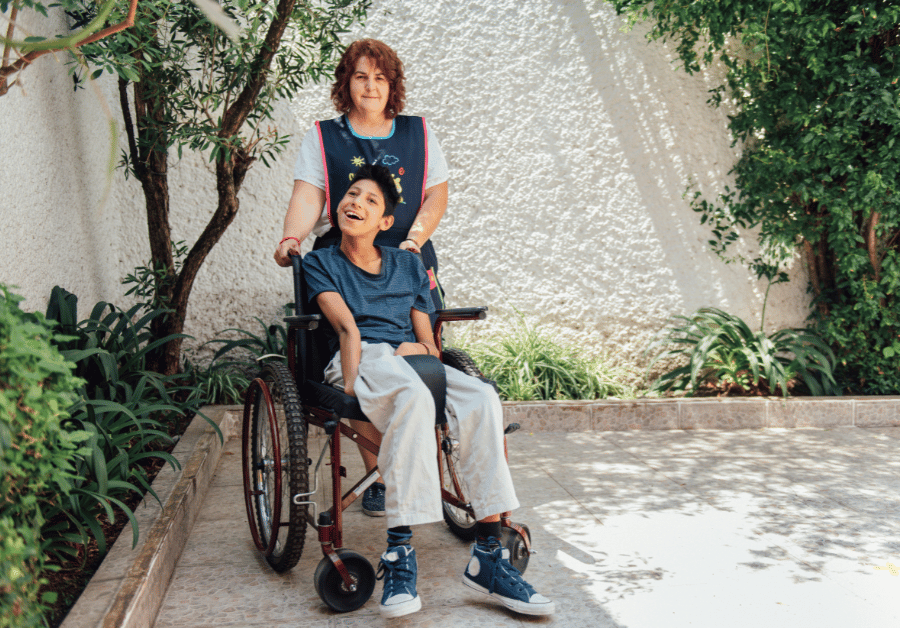Respite Care for Special Needs: A Lifeline for Australian Families
Respite Care for Special Needs: A Lifeline for Australian Families
Caring for a loved one with special needs is an act of profound dedication and love. However, the ongoing commitment can be incredibly demanding, both physically and emotionally. This is where respite care emerges as an invaluable support system, offering a crucial break for carers and enriching experiences for individuals with disability. In Australia, understanding and accessing quality respite special needsservices is essential for maintaining the well-being of the entire family unit. Alliance Care Support is at the forefront of providing tailored, compassionate respite care solutions across the nation, from Sydney to Perth, Melbourne to Brisbane, and Adelaide to Hobart.
This comprehensive guide will delve into the multifaceted world of respite care for special needs, exploring its benefits, various types, funding options through Services Australia and the NDIS, and how to find the right support to meet your family's unique needs. We aim to provide more value than existing articles by offering practical advice, detailed insights, and a clear pathway to securing the care you and your loved one deserve.
Understanding Respite Care: More Than Just a Break

At its core, respite care is short-term, temporary care that provides a planned break for primary carers of a child with disability or an adult with special needs. While the word ‘respite’ might initially feel clinical, as one special needs parenting article noted, its importance of respite cannot be overstated. It’s not just about giving carers time off; it’s about ensuring their sustained capacity to provide ongoing care, preventing burnout, and promoting their overall physical and mental health. For the individual receiving care, respite services offer opportunities for new experiences, socialisation, and skill development in a safe, supportive environment.
Many carers feel a sense of guilt when considering respite care, believing they should always be the one providing support. However, this perspective overlooks the critical reality that carers themselves have needs for rest, personal appointments, family time, or simply a moment to recharge. A well-rested carer is a more effective and compassionate carer. Respite care allows carers to step away, knowing their loved one is in capable hands, thus reducing stress and fostering resilience.
The Profound Benefits of Respite for Carers and Individuals
The advantages of utilising respite care extend far beyond a simple break:
- For Carers:
- Prevention of Burnout: Regular breaks help alleviate the intense pressure and fatigue associated with ongoing care, ensuring carers can continue their role effectively.
- Personal Well-being: Time for self-care, hobbies, socialising, or simply quiet reflection is vital for mental health and emotional balance.
- Strengthening Family Bonds: Allows carers to dedicate time to other family members, including partners or other children, without the immediate responsibilities of care.
- Opportunity for Appointments: Facilitates attending medical appointments, work, or other personal commitments that might otherwise be difficult to schedule.
- Improved Quality of Life: Contributes to a more balanced and fulfilling life for carers, reducing feelings of isolation and overwhelming responsibility.
- For Individuals with Special Needs:
- New Experiences: Offers opportunities to engage in different activities and environments, fostering personal growth and learning.
- Socialisation: Provides interaction with new people and peers, building social skills and reducing dependence on primary carers.
- Skill Development: Many respite services incorporate therapeutic activities and daily living skill development, such as personal care, communication, and independence.
- Change of Routine: A temporary change can be stimulating and enjoyable, promoting adaptability and resilience.
- Safe and Supportive Environment: Ensures continuity of care in a structured, accessible setting tailored to their special needs.
Types of Respite Care Available in Australia
Respite care in Australia comes in various forms, designed to meet diverse needs and preferences. Understanding these options is key to finding the most suitable support for your family. Alliance Care Support offers a range of flexible respite services to accommodate different situations.
1. In-Home Respite Care
This type of respite care involves a support worker coming into your home to provide care for your loved one. It’s an excellent option for those who prefer to maintain their familiar surroundings and routines. In-home respite can be for a few hours, overnight, or even for several days, depending on your needs. It allows the carer to leave the house for appointments, social events, or simply to rest in another part of the home, knowing their loved one is being cared for professionally. Alliance Care Support specialises in providing compassionate and reliable in-home care, ensuring comfort and continuity.
2. Centre-Based Respite Care
Centre-based respite involves the individual attending a dedicated respite centre or day program. These centres often provide a structured environment with various activities, therapies, and opportunities for social interaction. They can be particularly beneficial for individuals who thrive in group settings and enjoy engaging in diverse programs. Many centres cater specifically to children with disability, including those with autism or ADHD, offering specialised therapy services and early intervention programs.
3. Residential Respite Care
Residential respite care involves the individual staying overnight or for an extended period at a dedicated respite facility or an NDIS-approved home, like those offered by Alliance Care Support. This option is ideal for carers who need a longer break, perhaps for a holiday, a hospital stay, or simply an extended period of rest. These facilities are equipped to provide high level of ongoing care, including personal care, medication management, and structured activities. For families in Sydney, Melbourne, or Brisbane, finding local residential respite options is crucial, and providers like Alliance Care Support ensure accessible, comfortable environments. Managing residential respite care requires careful planning to ensure it aligns with the individual's needs and NDIS plan.
4. Emergency Respite Care
Life is unpredictable, and sometimes carers face unforeseen circumstances, such as a sudden illness or family emergency, that necessitate immediate respite care. Emergency respite is designed to provide urgent, short-term care when planned respite isn't an option. The Carer Gateway is often the first area contact for such situations, providing a national resource for carers in Australia. They can help you findemergency respite care in your area, which is usually available 24 hours a day, 7 days a week. Alliance Care Support understands the critical need for flexibility and responsiveness in these urgent situations.
Funding Respite Care: Navigating the NDIS and Services Australia

Accessing respite care in Australia often involves understanding the funding mechanisms provided by the National Disability Insurance Scheme (NDIS) and Services Australia. These frameworks are designed to provide financial support and resources for individuals with disability and their carers.
The National Disability Insurance Scheme (NDIS)
For many individuals with special needs, the NDIS is the primary source of funding for respite care. The NDIS provides funding for a range of support services that enable participants to live independently and achieve their goals. Respite care typically falls under the ‘Core Supports’ budget, specifically ‘Assistance with Daily Life’ or ‘Social and Community Participation’. It’s crucial to have respite care explicitly included or implicitly covered within your NDIS plan. Alliance Care Support is an NDIS registered company and can assist families in understanding how their plan can be utilised for respite services, including Supported Independent Living (SIL) options that can function as residential respite for longer periods.
When discussing your NDIS plan, articulate clearly the need for respite care as a vital component of your support network. This isn't just about a break for carers; it's about the participant's well-being, skill development, and community engagement. Documenting how respite contributes to the participant's goals, such as increased independence or social skills, can strengthen your case.
Services Australia and Carer Gateway
Services Australia (formerly Department of Human Services) plays a significant role in providing support for carers in Australia. They offer various payments and services, such as the Carer Payment and Carer Allowance, which can help offset the costs associated with care. While these payments are not specifically for respite, they provide general financial support that can make accessing respite services more feasible.
The Carer Gateway is another critical resource, funded by the Australian Government. It provides a range of free services to carers, including:
- Counselling services
- Coaching and peer support
- Practical support and advice
- Access to emergency respite (as mentioned earlier)
- Connecting carers with local respite services and support groups.
If you are caring for someone with special needs and are unsure about accessing respite or other support, the Carer Gateway is an excellent first contact point. Their team can help you navigate the system and understand your eligibility for various assistance programs.
Choosing the Right Respite Provider: What to Look For
Selecting the right respite provider is a crucial decision that impacts both the carer and the individual receiving care. Here’s what to consider when looking for quality respite services in Australia:
- NDIS Registration and Compliance: Ensure the provider is NDIS-registered, demonstrating adherence to national quality and safeguarding standards. Alliance Care Support is fully NDIS-approved, providing peace of mind.
- Experience and Specialisation: Look for providers with proven experience in supporting individuals with similar special needs to your loved one (e.g., disability autism, intellectual disability, physical disability).
- Tailored Care Plans: A good provider will work with you to develop an individualised care plan that addresses specific needs, preferences, and goals. This includes everything from dietary requirements to preferred activities and communication styles.
- Staff Qualifications and Training: Inquire about the qualifications, background checks, and ongoing training of support staff. Compassion, professionalism, and relevant skills are paramount.
- Environment and Accessibility: If considering residential respite or centre-based care, visit the facility to ensure it is safe, welcoming, and fully accessible. Alliance Care Support’s NDIS-approved homes are designed with accessibility and comfort in mind.
- Flexibility and Availability: Can the provider accommodate your schedule and needs, including emergency respite if required? Are their services usually available hours that suit you?
- Communication and Transparency: A strong provider maintains open lines of communication, providing regular updates and being responsive to your questions and concerns.
- References and Reviews: Don’t hesitate to ask for references or check online reviews to gauge the experiences of other families.
Planning for Respite: Tips for Carers

Effective planning can make the respite care experience smoother and more beneficial for everyone involved. Here are some practical tips for carers in Australia:
- Plan Ahead: Whenever possible, plan your respite periods in advance. This allows you to secure your preferred provider and ensures sufficient time for preparation.
- Communicate Clearly: Provide the respite provider with all necessary information about your loved one’s needs, routines, medication, preferences, and emergency contacts. A detailed care plan is invaluable.
- Prepare Your Loved One: If appropriate, explain to your loved one what respite care entails and who will be caring for them. Familiarisation visits can help ease any anxiety.
- Pack Essentials: Ensure all necessary items are packed, including medications, favourite toys, comfort items, and clothing for the duration of the respite.
- Utilise Your Time Wisely: Whether it’s for rest, personal appointments, or connecting with friends, make the most of your respite time to recharge.
- Debrief Afterwards: Upon your loved one’s return, and after your respite period, take time to debrief with the provider and your loved one. This helps refine future respite experiences.
Alliance Care Support: Your Partner in Respite Special Needs Care
Book compassionate respite care with Alliance Care Support.
Contact Us TodayAt Alliance Care Support, we understand the profound importance of respite for families caring for individuals with special needs in Australia. Our mission is to empower individuals with disabilities by providing tailored care, support, and resources that foster independence and enhance quality of life. We are dedicated to offering flexible and compassionate respite services that truly make a difference.
We offer a holistic approach to respite care, integrating it seamlessly with our other NDIS-approved support services, including Supported Independent Living (SIL) and in-home care. Our NDIS-approved homes across Australia – from the bustling cities of Melbourne and Sydney to the vibrant communities of Brisbane, Perth, Adelaide, and Hobart – are equipped with accessibility features, ensuring safety and comfort for participants. Whether you need planned short-term respite or emergency respite care, our team is ready to provide the high level of care and support your loved one deserves.
Our compassionate care professionals are highly trained and committed to creating environments that foster personal growth and well-being. We believe that everyone deserves the opportunity to lead a fulfilling life, and our respite services are designed to facilitate this for both individuals with special needs and their dedicated carers.
Respite care is short-term, temporary support that allows primary carers of individuals with disability or special needs to take a planned or emergency break. It’s available to carers of children and adults with special needs, and can be accessed through NDIS funding, Services Australia programs, or privately.
Yes. The NDIS often funds respite care under the Core Supports budget, specifically under “Assistance with Daily Life” or “Social and Community Participation”. It’s important to ensure your need for respite is clearly outlined in your NDIS plan.
Options include in-home respite, centre-based programs, residential stays, and emergency respite. The right choice depends on your loved one’s needs, your schedule, and the goals outlined in your care plan.
Look for an NDIS-registered provider with experience in your loved one’s specific needs, a tailored care planning process, well-trained staff, accessible facilities, flexible scheduling, and positive reviews from other families.
Conclusion: Embracing Respite for a Balanced Life
Respite care for special needs is not a luxury; it is a fundamental component of sustainable, compassionate care for families in Australia. By providing essential breaks for carers and enriching experiences for individuals with disability, respite services contribute significantly to the overall health and harmony of the family unit. Understanding the various types of respite, navigating funding options through the NDIS and Services Australia, and choosing a reputable provider are all crucial steps towards embracing this vital support.
Alliance Care Support is here to partner with you on this journey, offering expert, person-centred respite care across Australia. We are committed to helping you and your loved one thrive, ensuring that care is always available and tailored to your specific needs. Take the step towards a more balanced and fulfilling life by exploring the respite services that can make a real difference.
Ready for a well-deserved break or looking for exceptional support for your loved one?
Contact Alliance Care Support today to discuss your respite special needs requirements and discover how our tailored services can provide the support you need. Visit our website at https://alliancecaresupport.com.au/ to learn more about our NDIS-approved care solutions.
